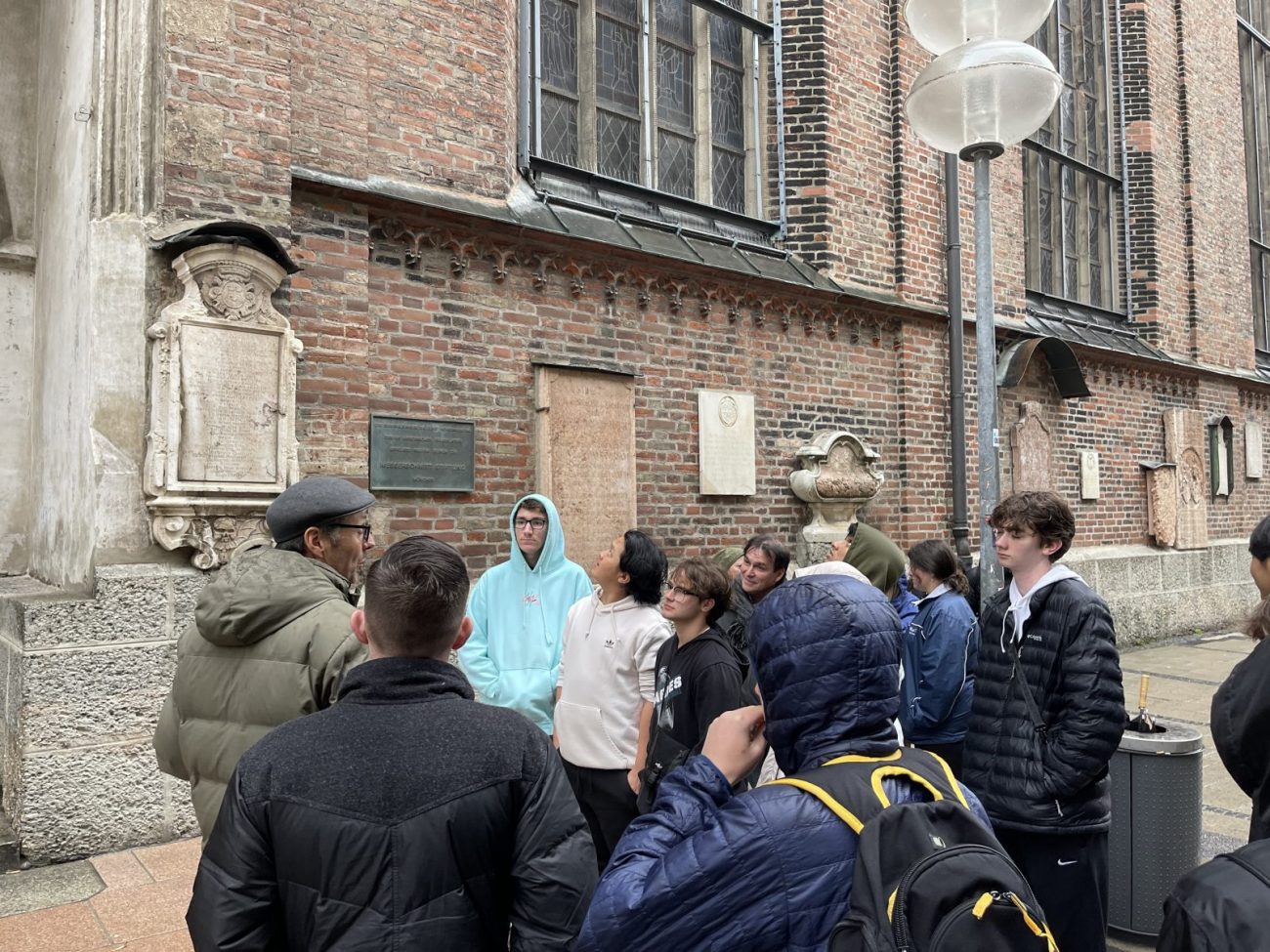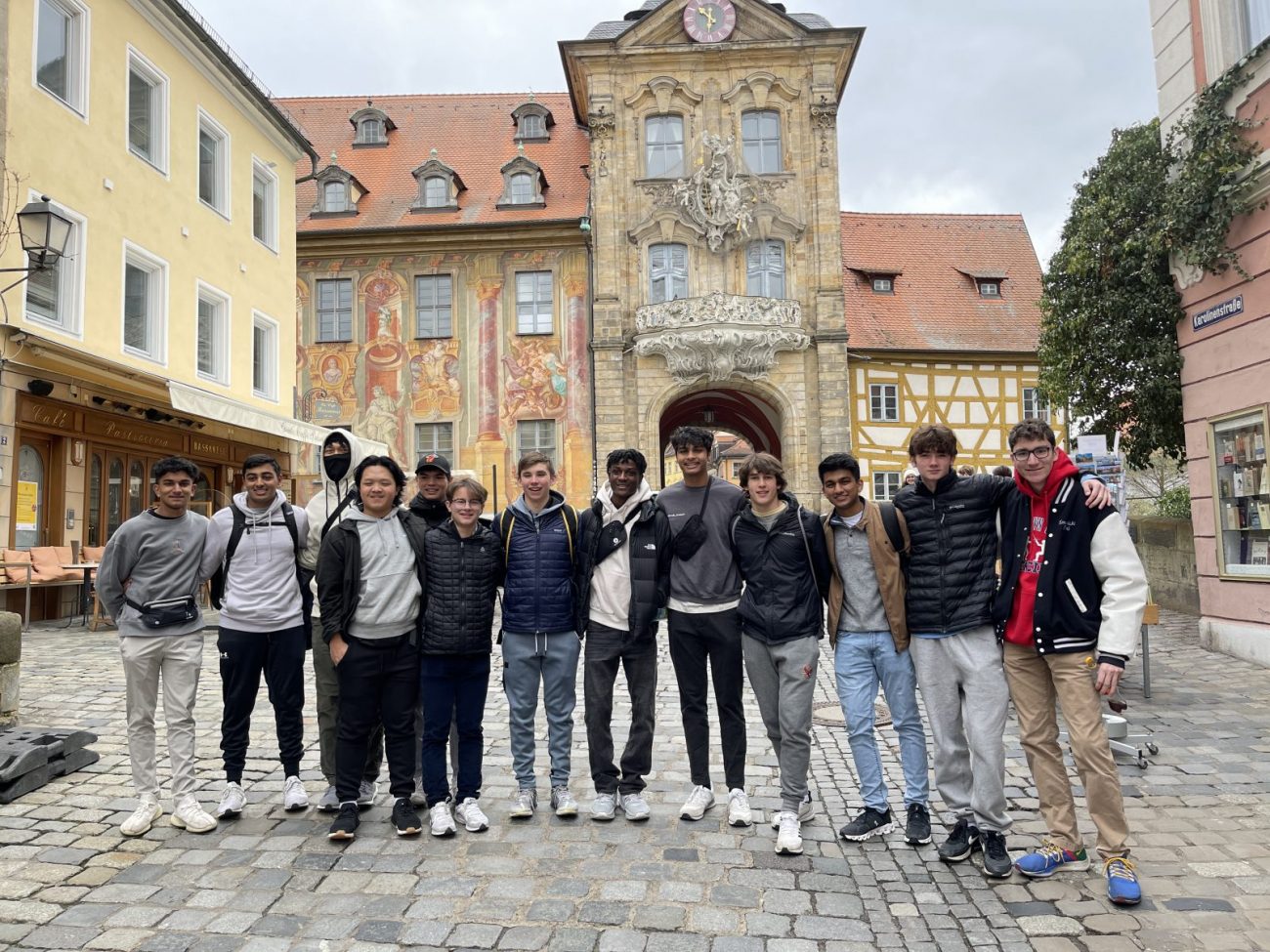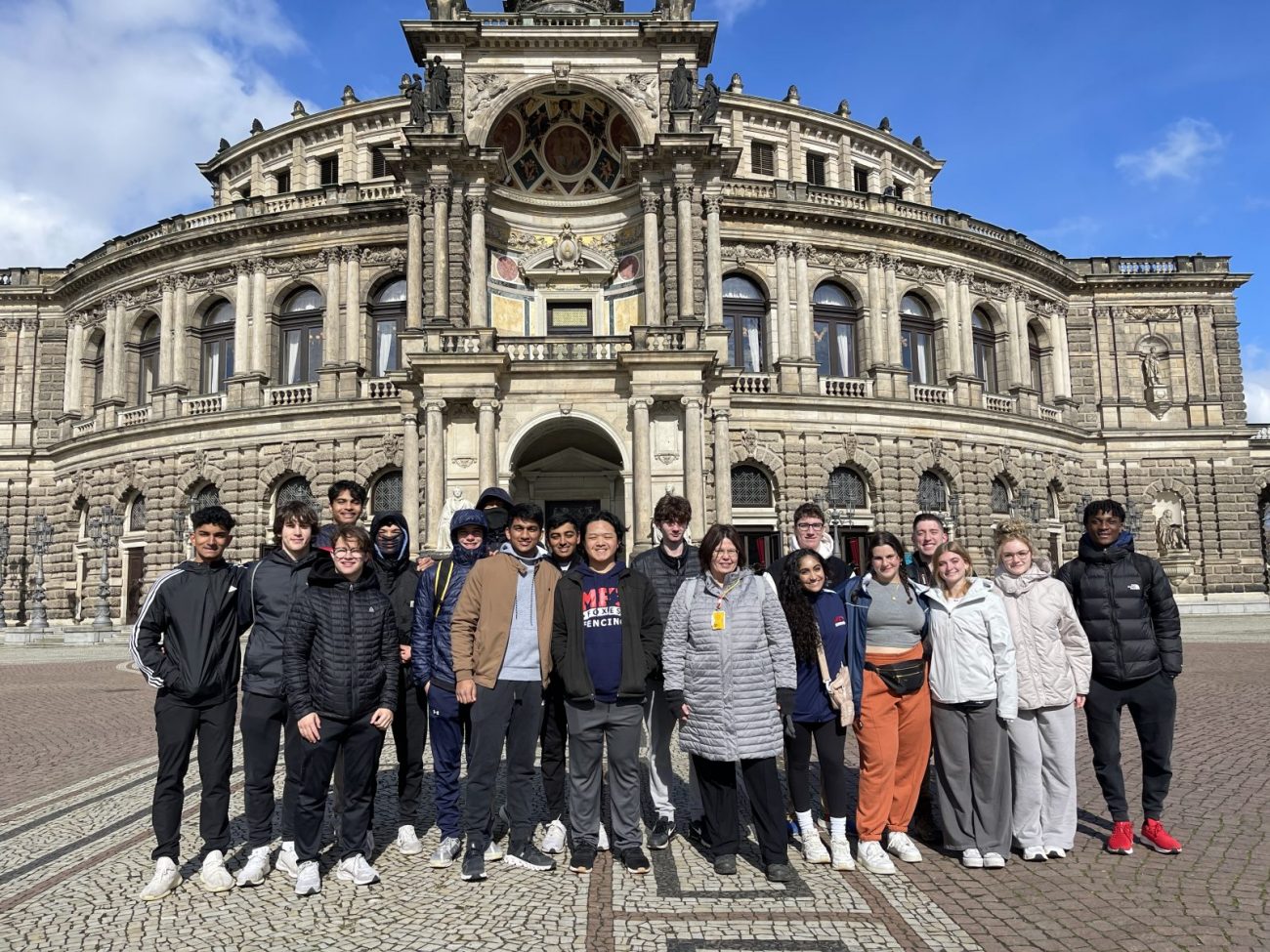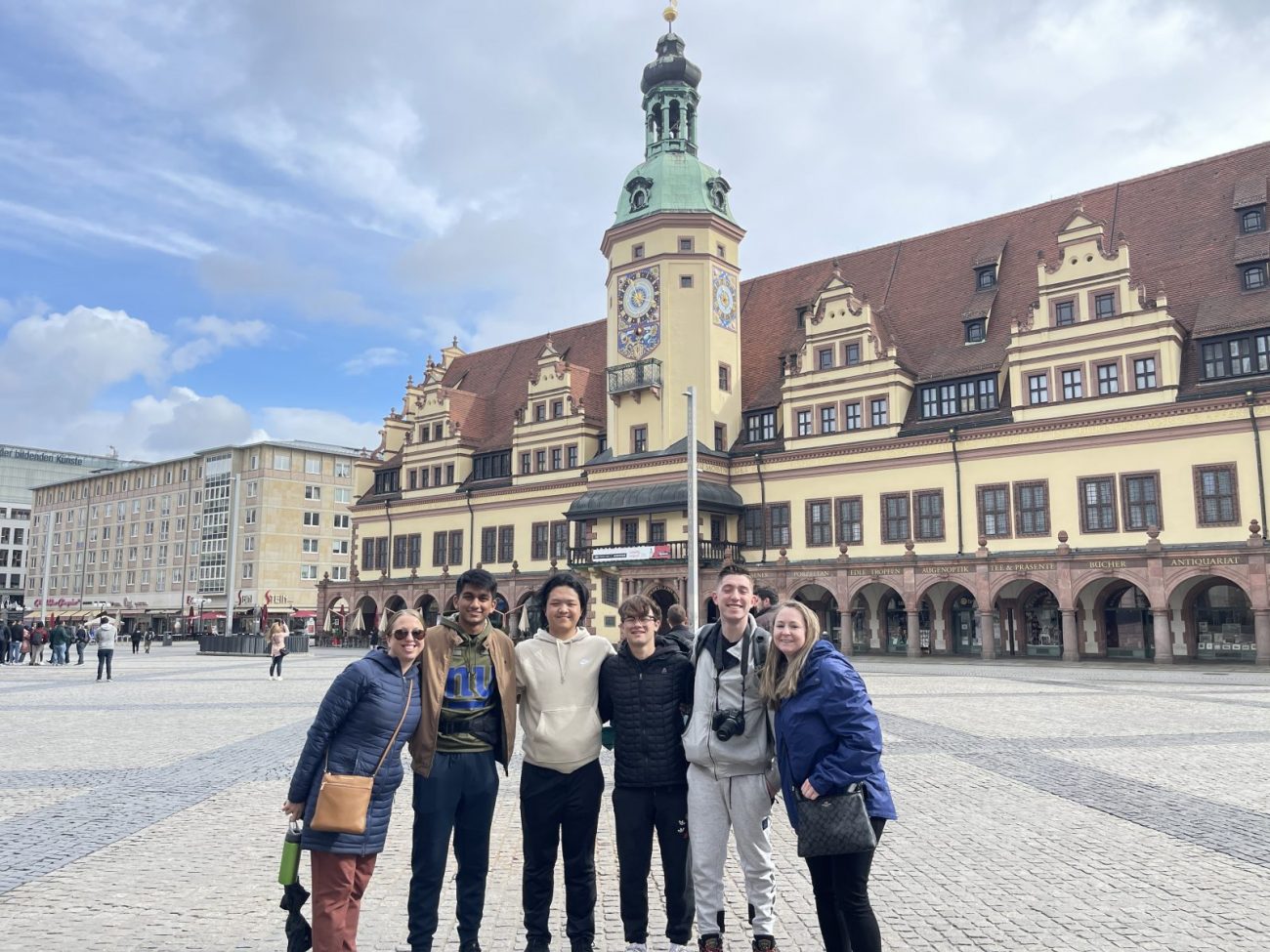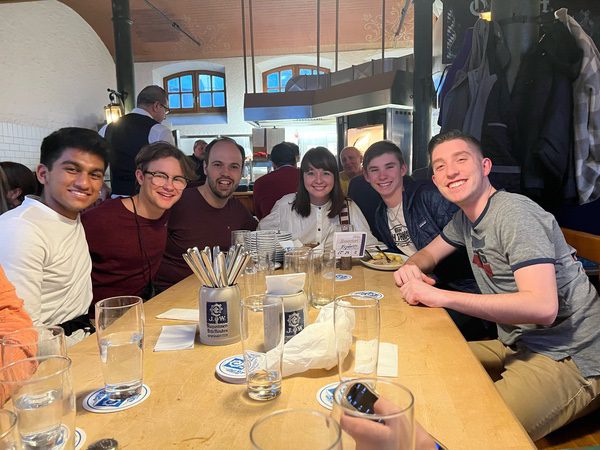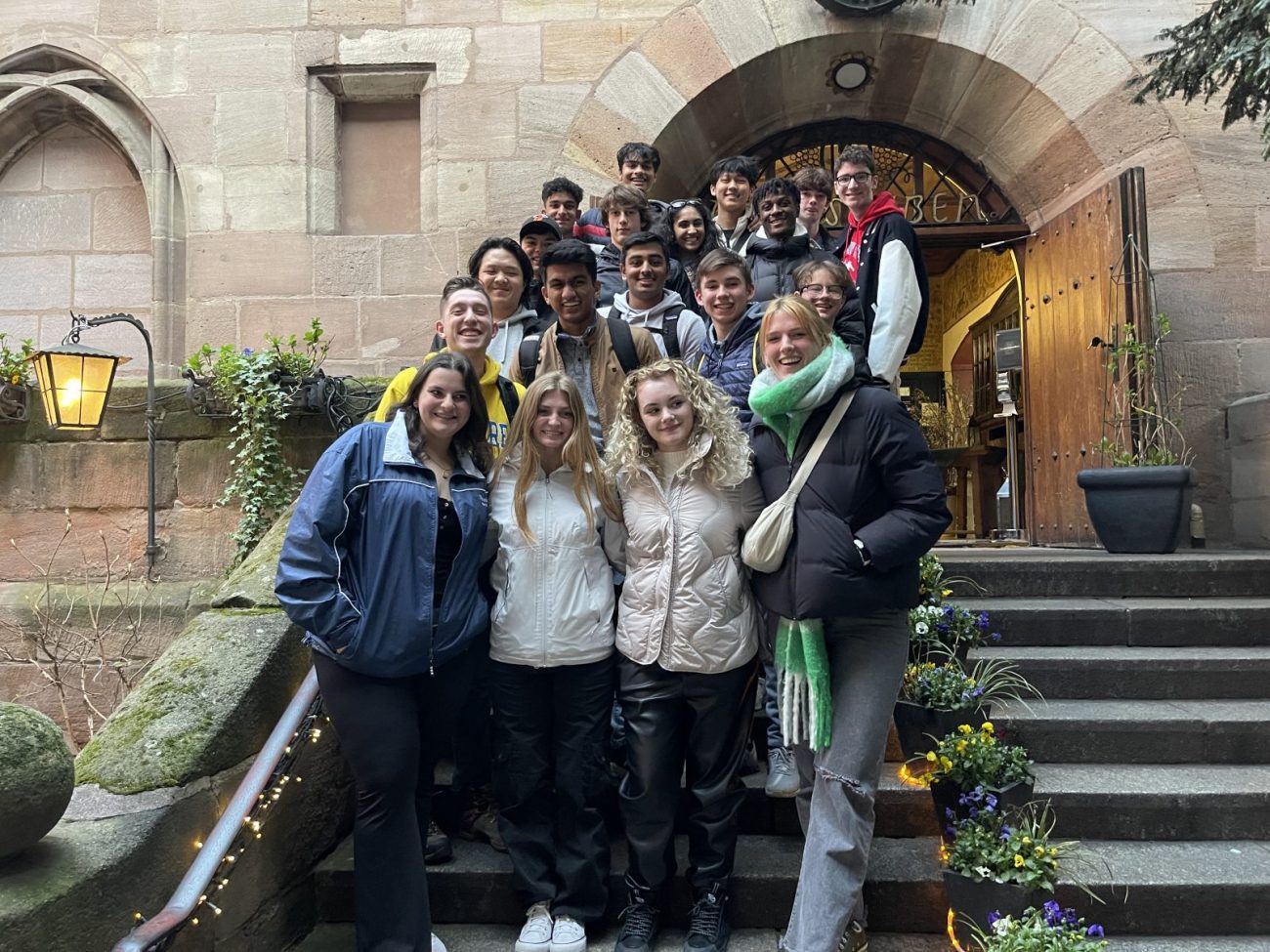Upper School Intensive Learning Spotlight: Historical and Cultural Tour of Germany
History came alive for Upper School students who traveled to Germany during Intensive Learning this spring. Their eight-day trip included guided tours and museum visits in the cities of Berlin, Leipzig, Dresden, Nuremberg, Bamberg, Bavaria, and Munich, which allowed them to see and experience past historical events and aspects of German life.
The trip kicked off with time in Berlin visiting the Reichstag, Brandenburg Gate, and Berlin Wall. In the days following, many of the locations visited were WWII-focused: a German military museum in Dresden showed the machinery and weapons used by soldiers; the Nuremberg Trials memorial provided a real-life look at the courtroom that housed Nazi soldiers as they were tried and sentenced following the war; and visits to the Nazi rally grounds and Dachau concentration camp exemplified the scale of the war in Germany and horror felt by so many. While many of the historic sites seen focused on a dark portion of world history, the students found themselves joining together to share in silent reflection and then listened to one another as they shared their thoughts and feelings after each experience.
Between museum and site visits, the group enjoyed German foods, listening to music, touring through the cities on scooters, visits to castles, churches, and the BMW museum, as well as meeting up with friends and family in the area including one student’s aunt and uncle and a former MFS exchange student who lives in Nuremberg.
You can read much more about this trip at the 2023 MFS Intensive Learning blog, where you can also read about all other Upper School Intensive Learning trips and experiences.
This is one in a series of 2023 Intensive Learning Spotlights. For one week each March, regular classes are suspended for “Intensive Learning,” when Middle and Upper School students and teachers engage in an in-depth study of a specific subject, often involving off-campus research. This long-standing MFS tradition — which dates back to the mid 1970s — allows teachers and students to break out of the structure of formal class periods and traditional study for a time of experiential learning. Both students and teachers are encouraged to view themselves as life-long learners and students of the world around them.

